10 Famous Songs That Were Sued For Plagiarism
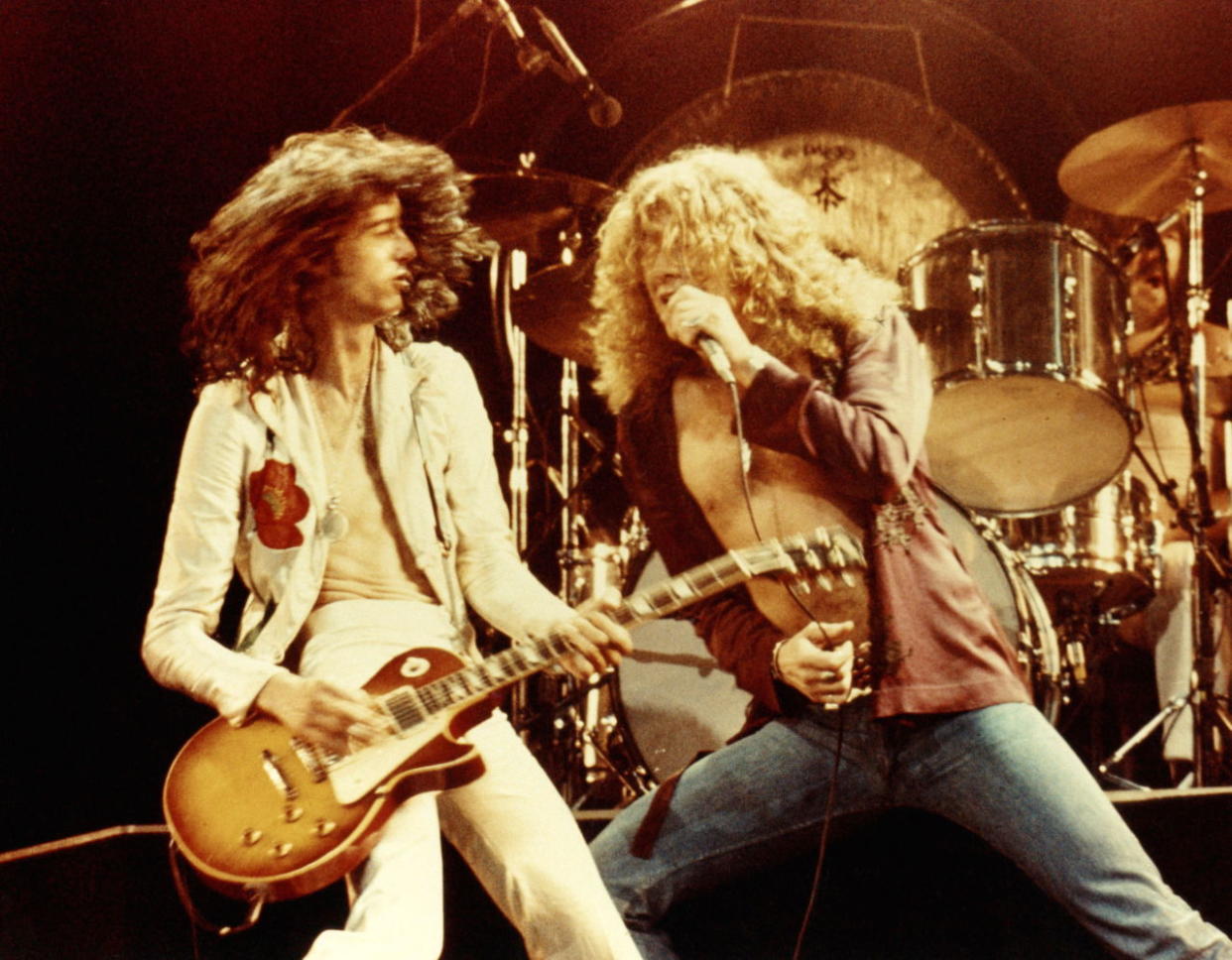
Led Zeppelin’s Robert Plant and Jimmy Page must face trial after a judge ruled that Stairway to Heaven may have been partly plagiarised.
The song, which was released in 1970, bears a strong resemblance to Taurus, a 1968 instrumental by the group Spirit.
Its writer Randy California has long alleged that Led Zeppelin nicked the opening riff having heard it when the bands toured together (something Zeppelin deny).
But Page and Plant aren’t the first musician to be accused of – or sued for – copyright infringement…
The Beatles – Come Together/Chuck Berry – You Can’t Catch Me
The Beatles made no secret of their admiration for black music, nor the effect it had on their songwriting – and were accused of plagiarism more than once. In fact, Chuck Berry’s publisher, Big Seven Music (owned by Morris Levy), successfully sued John Lennon twice over copyright infringement for Come Together.
Unusually, having been found guilty of lifting a refrain from Berry’s You Can’t Catch Me, Lennon promised to cover three Levy-owned songs on a later album. He covered two – and was sued for not including a third.
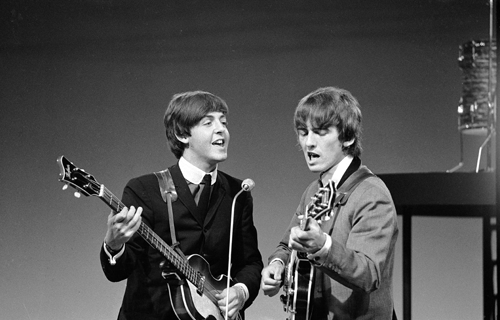
George Harrison, right, with Paul McCartney (WIkiCommons)
George Harrison – My Sweet Lord/The Chiffons – He’s So Fine
Another of the Fab Four to face litigation, George Harrison was involved in one of the most high-profile plagiarism cases of all time over his solo track,
My Sweet Lord. In 1976, he was found guilty of having subconsciously lifted from the Chifton’s 1963 hit ‘He’s So Fine’, written by Ronnie Mack. He was ordered to pay £412,000.
The word ‘subconsciously’ in the ruling was crucial: it was a landmark decision that made paved the way for many more court battles (and made the riff-lifting stars of the 60s collectively gulp).
Oasis – Shakermaker/The New Seekers – I’d Like to Teach the World to Sing
Noel Gallagher is almost certainly the only person on this list to have been accused of plagiarising a plagiarised song (as he was with Supersonic, which sounds a lot like My Sweet Lord). In fact, he’s been accused time and time again – and has been pretty unapologetic about his “borrowing”.
On Shakermaker, the band’s second single, he was found to have lifted from The New Seekers’ I’d Like to Teach the World to Sing, a song which appeared on a 1970s Coca-Cola advert. After paying £270,000 in damages, Gallagher quipped: “We all drink Pepsi now.”
The Verve – Bittersweet Symphony/ The Rolling Stones – The Last Time
The Stones, like Zeppelin and The Beatles, were unafraid to lift blues riffs, so it’s easy to have a little sympathy with Richard Ashcroft of The Verve, who fell foul of Jagger and co’s legal might.
There is no denying, however, the similarities between The Verve’s Bittersweet Symphony and Andrew Loog Oldham’s gorgeous orchestral version of The Last Time. The band actually thought they had cleared the sample, but hadn’t. The judge came down hard, giving Jagger and Keith Richards songwriting credits – and all royalties.
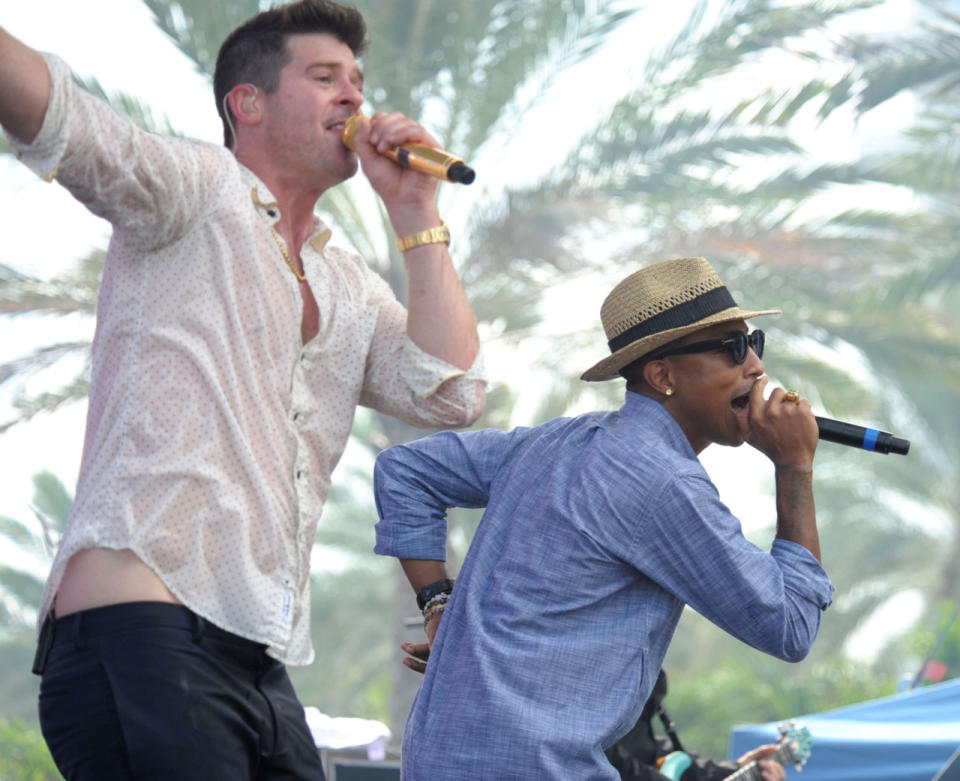
Thicke and Pharrell (Startraks Photo/REX/Shutterstock)
Robin Thicke and Pharrell Williams – Blurred Lines/Marvin Gaye – Got To Give It Up
In one of the most high-profile copyright battles in decades, Robin Thicke and Pharrell Williams were accused of stealing from Marvin Gaye’s 1977 disco classic Got To Give It Up for their song Blurred Lines.
The song was already highly controversial, with campaigners having claimed it promoted non-consensual sex. It ended in a huge headache for both the producer and singer, after the judge awarded a staggering £5.1m in damages to Gaye’s family (a number which has since fallen to a still-massive £3.7m).
Johnny Cash – Folsom Prison Blues/Gordon Jenkins – Crescent City Blues
Where sample, cover or adaptation end and plagiarism begins usually depends on one thing: credit. It’s unlikely that Johnny Cash was attempting to pull the wool over anyone’s eyes with his take on Gordon Jenkins’ 1953 Crescent City Blues, but nonetheless Folsom Prison Blues’ liner notes made no reference to the earlier recording.
After Cash rereleased the song in 1968 and it became a hit, he was forced to settle out of court with Jenkins, giving him £53,000.
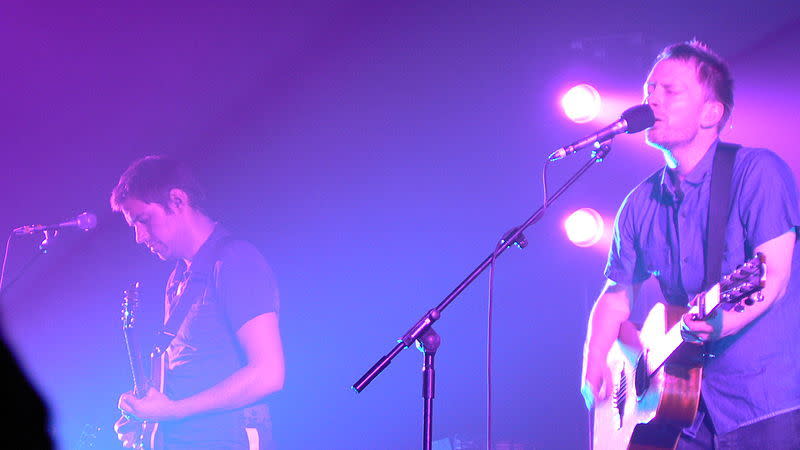
Radiohead (michell zappa/WikiCommons)
Radiohead – Creep/The Hollies – The Air That I Breathe
Now regarded by many as one of the most innovative bands of their generation, Radiohead’s early output was remarkably free from experimentation. Much of their first album, Pablo Honey, borrowed heavily from Nirvana, but it was Merseybeat band The Hollies they found inspiration from on their most famous song at the time, Creep.
So close was it to the group’s 1974 song The Air I Breathe, its writers Albert Hammond and Mike Hazlewood were given co-writing credits, having successfully sued the band for similarities in chord progression and vocal melodies.
Avril Lavigne – Girlfriend/The Rubinoos – I Wanna Be Your Boyfriend
Pop punk singer Avril Lavigne was probably shocked to hear from the now-forgotten 1970s power-pop group The Rubinoos when she released her single Girlfriend in 2007.
The group alleged that the singer had stolen from their song I Wanna Be Your Boyfriend and demanded compensation. Lavigne’s camp initially denied the songs sounded anything alike – or that the singer had even heard the original. However, eventually she settled out of court for an “undisclosed fee”.
Coldplay – Viva la Vida/Joe Satriani – If I Could Fly
Having scored their first-ever US Number One with Viva La Vida in 2008, Coldplay found their celebrations crashed by guitar wizard Joe Satriani, who claimed they had stolen from his song If I Could Fly.
In what is a pretty common outcome the band argued it was purely a coincidence – but still decided to settle out of court rather than take it before the judges. Going by the Blurred Lines verdict, it’s not a bad decision.
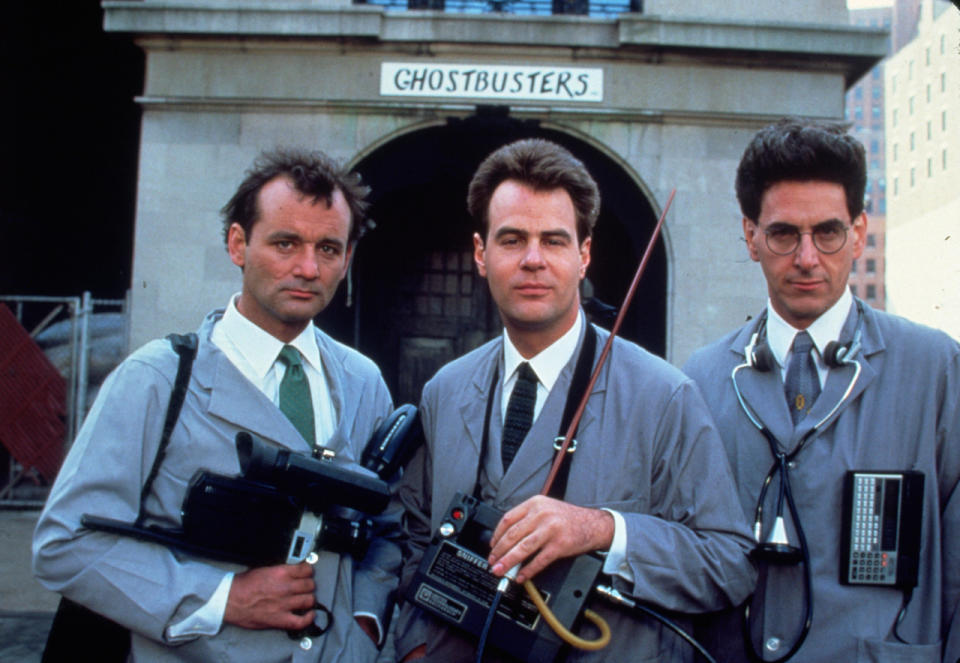
The theme from Ghostbusters was found to be partially plagiarised
(SNAP/REX/Shutterstock)
Ray Parker, Jr – Ghostbusters/Huey Lewis – I Want a New Drug
Most plagiarism cases revolve around an artist having lifted parts of an older song, whether consciously or not. What’s unusual about this case is it involves two songs from the same year: Ray Parker, Jr’s Oscar-nominated Ghostbuster theme and Huey Lewis’ I Want A New Drug, both of which came out in 1984.
The latter had been commissioned by the film producers to write the theme, but declined – and then, later, Parker Jr’s song came out sounding pretty similar to I Want a New Drug. Columbia Pictures settled out of court – although it was supposed to be a secret (as defined in the agreement). When Lewis let it slip in 2001, Parker Jr then actually sued him.
(Credit: Everett Collection/REX/Shutterstock)

